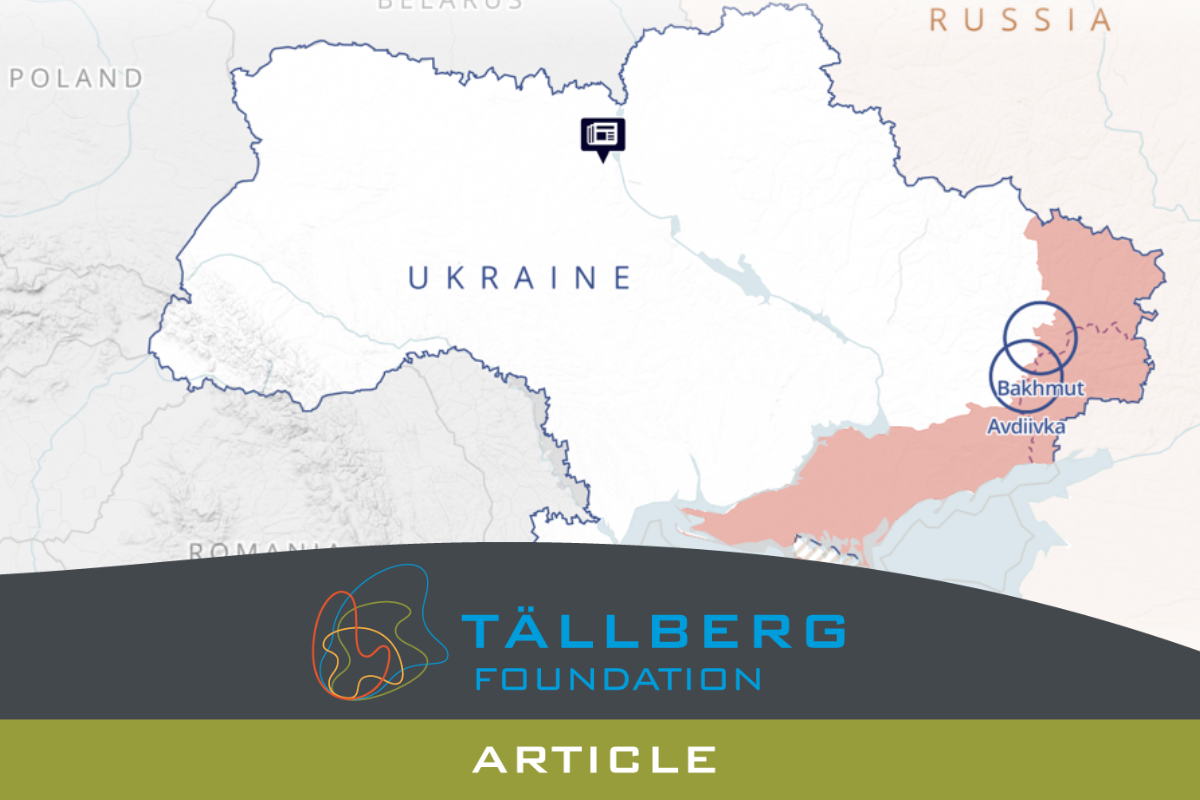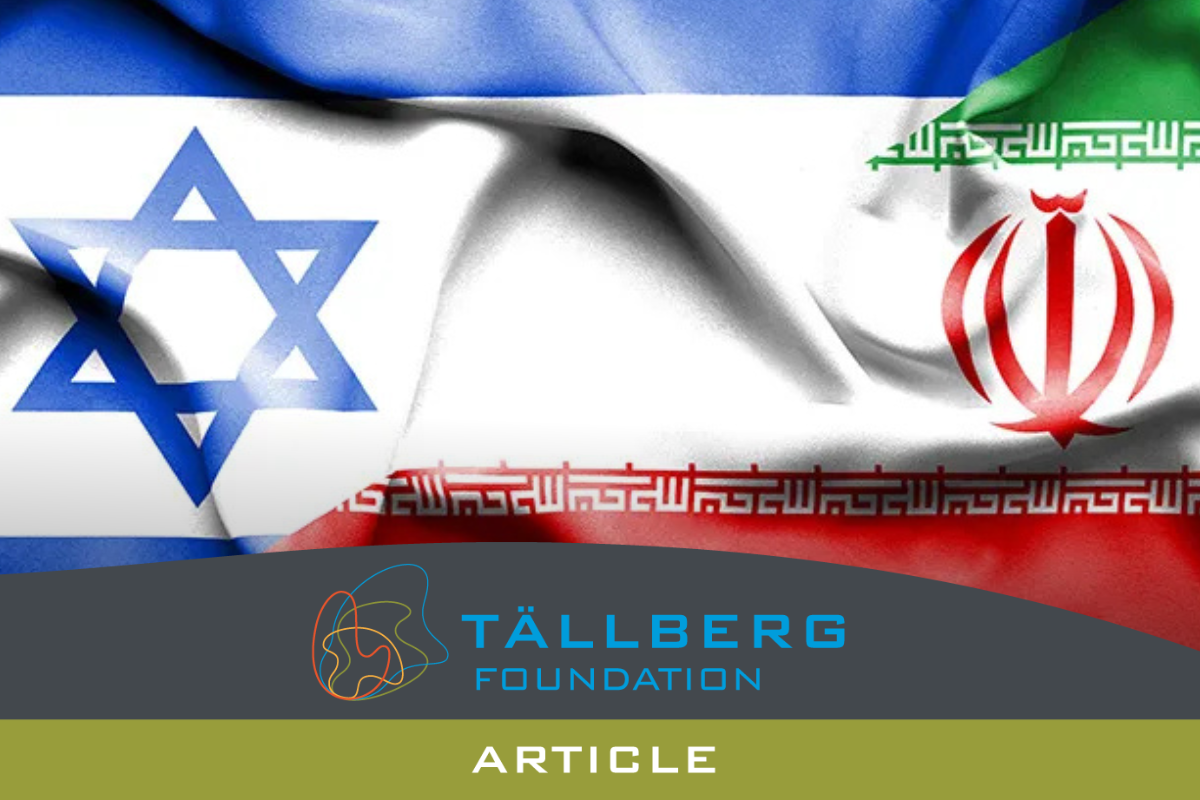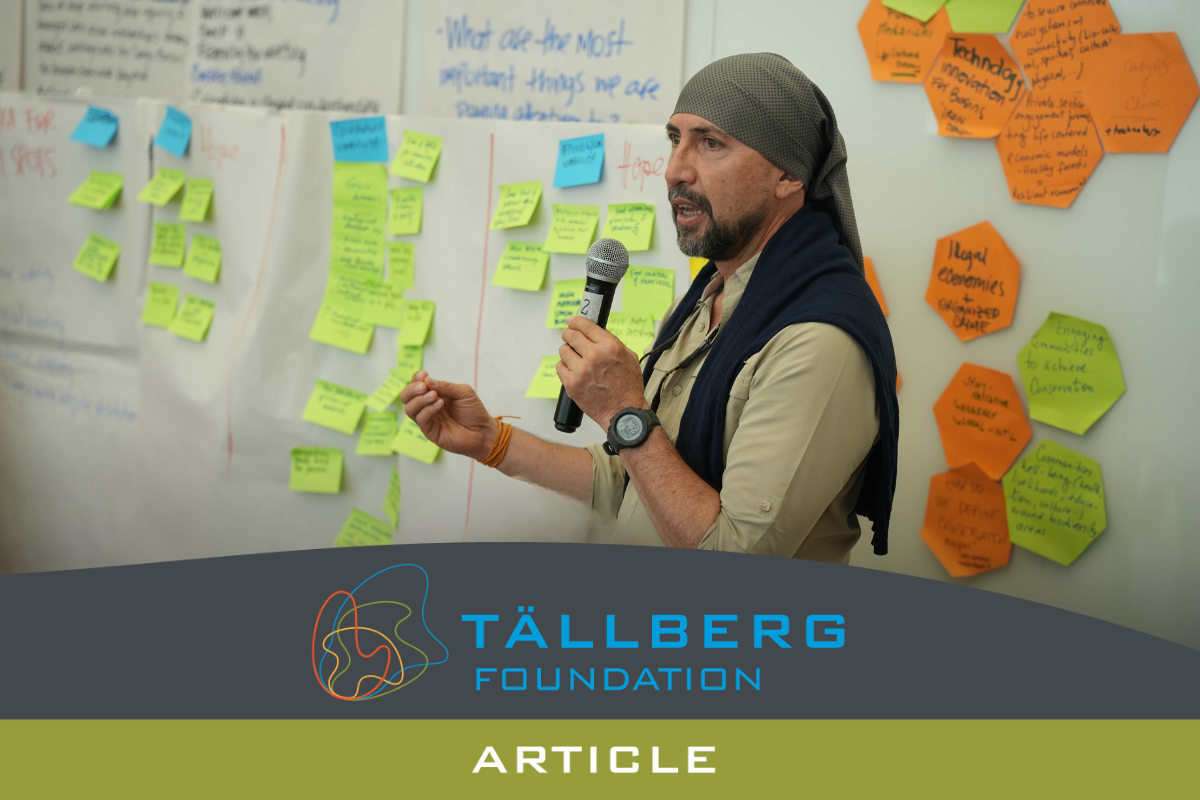Russia’s war on Ukraine has metastasized into a brutal war of attrition. Anna Wieslander, Swedish defense and security expert, clearly worries that the past might be prologue, not because it is foreordained, but because the West lacks strategy and leadership.
***
Russia’s war on Ukraine has metastasized into a brutal war of attrition. Historically such a conflict favors the larger country; big has always been better when it comes to grinding out military victory over years, not months. Will this war be different?
Anna Wieslander, Swedish defense and security expert, clearly worries that the past might be prologue, not because it is foreordained, but because the West lacks strategy and leadership. She worries about “bold words, but no bold actions.” As she said in a recent “New Thinking for a New World” podcast, “I hear lots of rhetoric: ‘We have to stand by Ukraine for as long as it takes; Ukraine will win.’ [But we] still lack bold actions and strategy to make sure that this is what will happen.”
Why? Simply put, as Wieslander has written, “Fear, rather than courage, still dominates among Western leaders.”
Clearly she has thought carefully about the dynamic that is shaping the West’s reaction to Russia’s aggression; it’s equally clear that she believes that reaction is inadequate if the goal is to win.
What do leaders fear? “The first is the fear of escalation…There is a fear that just the mere signal that we would send this or that weapons system will cause Russia to escalate.” This is compounded by President Putin’s on-again, off-again talk about battlefield nuclear weapons that especially concerns the Americans. But, she argues that there is a second aspect to the escalation fear: fear that, left to themselves, Ukraine might escalate the war by attacking Russia with the powerful weapons the West is providing. “Do you really support the way you say you do when you tie their hands behind their backs?”
“Secondly, there is a fear of having Ukraine in the European family.” Wieslander points out that, although EU leaders have granted Ukraine a fast track to membership and there is much talk about NATO’s open-door policy, “There is a lot of hesitation and no real road map on how to proceed…no clear, honest debate in Europe on how to do this.”
Perhaps more surprising is the third fear: that Russia might lose or, more specifically, might be destroyed as a significant power. She cites French President Macron who has said that “Russia of course needs to be defeated in Ukraine but cannot be crushed.”
Wieslander acknowledges the historic antecedents underlying this thinking. In the 19th century France, Germany, Russia and Great Britain were “Great Powers” who fought among themselves to dominate Europe but needed each other to maintain the balance of power. The analogy in today’s world is that France and Germany in some ways seem to need Russia to maintain their own predominance.
Imagine a world where, after the war ends, Russia is permanently excluded from Europe. If that were to happen, Wieslander argues, “that would also reflect the decreased power of France and Germany. To define yourself as regional, European powers, Russia needs to be there…to bring status to France and Germany.” In other words, a defeated or excluded Russia would imply a big change in how Europe works, and therefore for the dominance of the Paris-Berlin power axis.
The fourth fear is the polar opposite: fear that Ukraine might be defeated. This is particularly present in East Europe, especially in Poland and the Baltic states that suffered under decades of Soviet Union domination. “There is a fear that if Russia is not stopped in Ukraine, Russia will only have appetite for more and be encouraged to continue this aggressive expansion of its sphere of interest.” In other words, if Ukraine falls, sooner or later the Russians will push further into Europe, regardless of NATO—which seems to be more firmly believed by leaders and peoples the further east one travels in Europe towards the Russian border.
If fear is the problem, then the answer comes down to leadership, missing from much of Europe. However, Wieslander does see leadership in Kyiv where President Zelensky, who has been “challenging the West from the start on what to do and why we haven’t done more. Without that kind of spark and fire from Kyiv, I don’t think we would be where we are today.” Wieslander also sees leadership in Washington, where President Biden has reversed the withdraw-from-Europe narrative that surfaced strongly during the Trump years. Biden has re-engaged. But is it enough? “Apparently not, because the strategy is still not there.”
Anna Wieslander’s bottom line?
Q “The war is more than a year old; do you think we’ll still be fighting it a year from now?”
A. “Yes.”
That is not good news for Ukraine in a war of attrition.
Listen to the full conversation between Anna Wieslander and “New Thinking for a New World” host Alan Stoga here.
Tell us if you think the war will still be going in COMMENTS below.
ABOUT THE GUEST
 Anna Wieslander is Director for Northern Europe at the Atlantic Council and concurrently serves as Secretary General of the Swedish Defence Association. She also chairs the Institute for Security and Development Policy (ISDP) in Stockholm and is a member of the Royal Swedish Academy of War Sciences.
Anna Wieslander is Director for Northern Europe at the Atlantic Council and concurrently serves as Secretary General of the Swedish Defence Association. She also chairs the Institute for Security and Development Policy (ISDP) in Stockholm and is a member of the Royal Swedish Academy of War Sciences.
Anna Wieslander was previously Deputy Director at the Swedish Institute of International Affairs (UI). She has held positions as Head of the Speaker’s Office in the Swedish Parliament, Secretary of the Swedish Defence Commission and Deputy Director of the Swedish Defence Ministry. She has also served as Communications Director in the private sector.
She holds an IB exam from United World College of the American West (1987), a BA degree in journalism from Gothenburg University (1990), and a MA degree in political science from Lund University (1995). She is a PhD candidate in international relations at Lund University, and has pursued doctoral studies at University of California at Berkeley. She is a 2015 alumni of the Georgetown University Leadership Seminar and 2018 alumni of the Swedish Defence University Higher Comprehensive Security Course.
Her expertise is in security and defence policy, Baltic sea security, NATO and partnerships, the transatlantic link, and issues affecting the defence industry.





Anna Weislander’s conversation with Alan Stoga was very interesting. She put her finger on important issues and some troubling questions.
Will the war still be ongoing in a year’s time? Almost certainly – yes. Ironically, Putin probably has the same attitude as the United States and its allies – “as long as it takes”. The difference is that, unlike Western leaders, he doesn’t have to take into account a volatile electorate. With a population much larger than that of Ukraine and under authoritarian control, Russia can maintain a war of attrition far longer than the patience of the West is likely to last. The conundrum is that neither side can win, but nor can either side afford to lose.
I do not know what were the reasons for such a consensus ( A long war may favour Russia?) It does not take much time to turn the pages of history to see that any long war favours the defender. What happened to the mighty United States/ France in Vietnam? Or United States/ USSR in Afghanistan? What I observe is the fact earlier big arms producers triggered wars between underdeveloped countries to increase their arms sales world -wide. As now a days smaller countries refuse to fall prey to the greedy arms dealers, merchants themselves directly enter the field.
The so called superpowers are not in a position to question any other superpower when the latter indulges in showing their might against the smaller countries. Neither the UN nor any other world organisation too remains helpless in this situation. But what is the remedy? It is high time smaller but right thinking countries unite and give a joint statement against countries like Russia, China and North Korea to stop invading in to any country. It is better for the whole world and better for their own interests these erring countries should stop any further aggression. We should keep in mind the fact that, that a pack of wild dogs can kill a mighty lion if it has to.